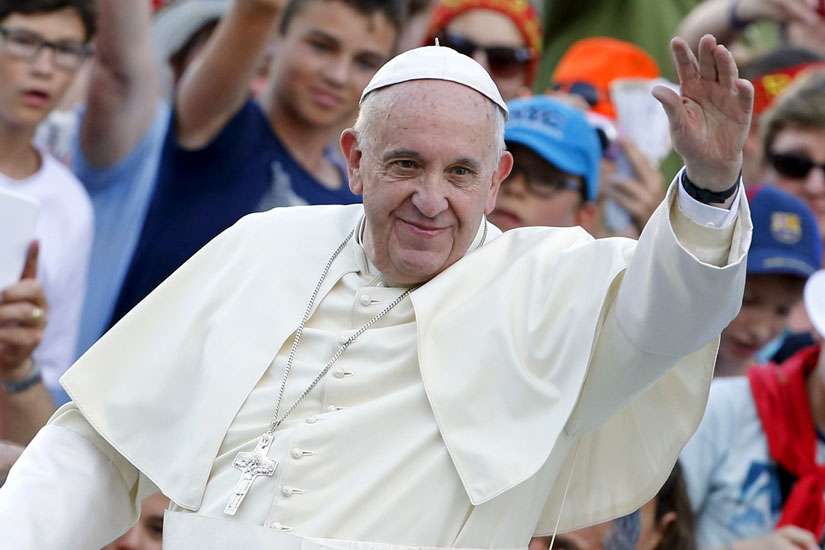“They always belong to the Church,” he added, calling on pastors to welcome Catholics who have remarried without an annulment, even though such Catholics are currently barred in most cases from receiving the Eucharist, the central sacrament of the faith.
“The Church is called to be always the open house of the Father … no closed doors! No closed doors!” Francis told the crowd at his weekly public audience, which resumed after a month-long summer break.
Since he was elected in 2013, Francis has said that the Church must be more merciful and more open, and he has encouraged debate on changing pastoral practices to allow, for example, divorced and remarried Catholics to take communion.
That issue was one of several that inflamed unusually public debates at a major Vatican summit of bishops that the Pope convened last October, and the arguments — which include how to welcome gay couples and those who are cohabiting — have continued to engage top churchmen in pointed exchanges ahead of a follow up Synod, set for October.
Many Vatican observers believe Francis wants to see some concrete changes, which his foes believe would be tantamount to heresy because they say such alterations would undermine Jesus’ teaching on the indissolubility of marriage.
The issue of how to treat divorced and remarried Catholics is just one of many the bishops will debate, but it is a widespread pastoral problem and has come to stand for the bigger question of how, and even whether, the Catholic Church can change.
Francis himself has not endorsed any particular proposal, and in focusing on the topic reiterated that “there is no easy solution for these situations.”
But he made it clear that he wanted the Catholic Church to take a new, more open approach.
“For how can we encourage these parents to raise their children in the Christian life, to give them an example of Christian faith, if we keep them at arm’s length?
“If we look at these new bonds (of remarried Catholics) with the eyes of small children — and the children do watch,” he said, “we see once again the urgency of developing in our communities a real welcome for people in such situations.”
The children are the ones who suffer most when their parents are shunned, Francis said.
How can the Church, he wondered, “tell these parents to do everything to raise their children as Christians, giving them an example of a firm and practised faith, if we keep them at arm’s length from the community, as if they were excommunicated?”
The Church, he concluded, “must do everything not to add further burdens to those that children in these situations must already bear.”


